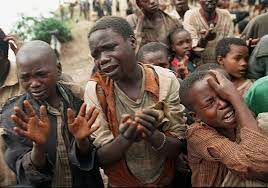THE HAGUE – The UN war crimes prosecutor tasked with finding the remaining fugitives sought by a U.N. tribunal over their alleged role in the 1994 Rwandan genocide, on Tuesday confirmed the death of genocide suspect Aloys Ndimbati.
That leaves just two fugitives still wanted by the court.
In the last three years, the International Residual Mechanism for Criminal Tribunals (IRMCT) has arrested two Rwandan genocide suspects and confirmed the deaths of four other fugitives, including Ndimbati.
In a statement, UN prosecutors concluded Ndimbati had died in 1997 in Rwanda.
“While the exact circumstances of his death have not been determined owing to the confusion and absence of order at the time, the evidence gathered by the office of the prosecutor demonstrates that Ndimbati did not leave the Gatore area, and that he was never seen or heard from again,” the statement said.
Ndimbati, a Rwandan public official at the time, was accused of having personally organised and directed the killings of thousands of Tutsis and faced multiple genocide charges.
In all, more than 800,000 Tutsis and moderate Hutus were slaughtered by Hutu extremists, led by the Rwandan army and a militia known as the Interahamwe, in 100 days in 1994.
In Rwanda, genocide survivor Eric Nzabihimana told Reuters Ndimbati played a role in the deaths of his mother, many siblings and extended family members.
“It shouldn’t end like this; it would have been better to see him held accountable for his actions,” Nzabihimana said, adding he was not surprised by the death because he’d already heard unconfirmed reports.
The former UN tribunals for war crimes in Rwanda and Yugoslavia have been rolled over into a successor court that has offices in The Hague, Netherlands, and in Arusha, Tanzania.
There are no remaining fugitives from the Yugoslavia tribunal and now only two outstanding suspects for the Rwanda tribunal.
















